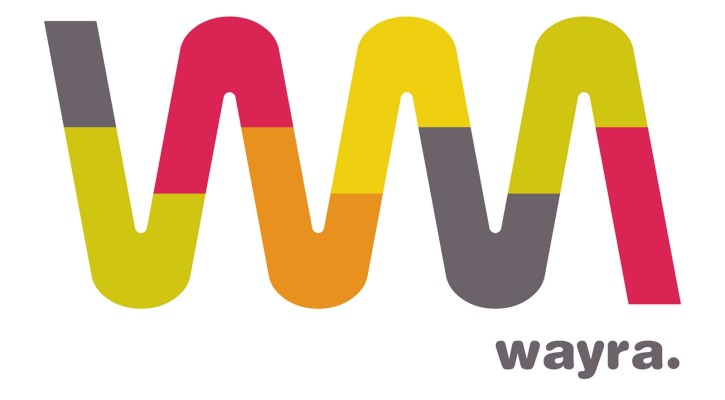Wayra is Telefónica’s network of startup accelerators. Running for around 20 months in Latin America, and just a year in Europe, the telecom giant has established 14 Wayra Academies in 12 countries in the cities of Bogotá, Mexico City, Buenos Aires, Lima, Madrid, Barcelona, Caracas, Sao Paulo, Santiago de Chile, Munich, London, Dublin, and Prague. That equates equates to opening an academy every two months.
Today the accelerator network is sharing some data exclusively with TechCrunch on how it’s fared so far in its young existence, including key metrics such as how much money it’s invested in the startups put through its programme, follow-on funding raised, how many companies have entered the dead-pool, and number of exits (spoiler: none so far). Yes, folks, we bring you more startup accelerator numbers.
But first let’s backtrack a little and delve briefly into how Wayra operates. Startups accepted into the programme receive up to €50k in funding, in the form of a convertible note, for which Wayra takes between 7% and 10% equity during any later investment round. They are also housed in one of the Wayra academies where they are supported for a minimum of 6 months, including mentoring and that all-important investor demo day with the aim to raise follow-on funding.
Being attached to a major international telco, one of the draws of Wayra is that synergies can be forged between the participating startups and Telefónica’s existing customers. On paper at least, there’s also an obvious potential exit path, too.
Accelerator Numbers
Wayra’s biggest asset is Telefónica. This is something that no other accelerator has.
Since launch, Wayra says it’s accepted 295 startups into its programme (either graduates or currently under acceleration) in the 12 countries it operates across Europe and Latin America. Of those, 109 are in Europe. In total, it says it’s received 20,544 applications to its academies.
Failure rate for its accelerated startups currently runs at around seven percent, with 21 companies entering the dead-pool so far. However, only 7 of those are from Europe, which makes sense given that Wayra’s European academies have been running for a significantly shorter time than in Latin America.
Perhaps further reflecting the immaturity of Wayra, it says that to-date none of its startups have been acquired, though it notes that several negotiations are currently taking place. Zooming out, however, it’s keen to stress that, although exits are certainly one measure of success, it has a slightly different focus compared to most accelerators in that backing companies who can leverage Telefónica’s 317m customers is also key.
Wayra says that where that happens it’s in no rush to push for a sale, giving companies in its programme a longer period in “revenue-generating acceleration” than they might find elsewhere. “Unquestionably, right now Wayra’s biggest asset is Telefónica. This is something that no other accelerator has,” it says.
The total amount of funding that Wayra has invested in its accelerated startups stands at $12.3 million – split between $5.6 million in Europe and $6.7 million in Latin America. Of the 150 or so startups that have graduated, more than half have secured outside funding, including grants as well as other equity investments.
Breaking this down further, approximately 40% of all graduating Wayra startups (and 51% in Europe) have secured non-grant follow on funding (either equity rounds or convertible notes from accredited investors or angels).
 In 2013 alone, Wayra says there have been 48 startups (both graduated and currently in the programme) that have successfully secured financing in the form of equity rounds or convertible notes. The average in follow-on funding per Wayra startup is $520,000 in Europe, and $445,000 in Latin America. Meanwhile, the total in follow-on funding via third party investors globally is approximately $26.5 million.
In 2013 alone, Wayra says there have been 48 startups (both graduated and currently in the programme) that have successfully secured financing in the form of equity rounds or convertible notes. The average in follow-on funding per Wayra startup is $520,000 in Europe, and $445,000 in Latin America. Meanwhile, the total in follow-on funding via third party investors globally is approximately $26.5 million.
The highest follow-on round was in Marfeel (Wayra Barcelona) which raised $2 million, though Wayra says that a higher round of up to $3.3 million will be announced shortly for another of its European startups. In Latin America, the highest round raised by a Wayra startup was $1.35 million by Plazapoints (Wayra Perú).
Wayra says the list of follow-on investors includes Nauta, Globant, BBVA, Elaia, Bertlesman Group, Dad Neos, Mangrove, Greycroft, Caixa Capital, and 500Startups. Of note is that Telefónica Ventures invested in Wayra-accelerated TaskHub, and Wayra says it’s confident that the telco’s Amérigo funds will make an investment in some of its portfolio companies. It does, however, seem somewhat disjointed that Telefónica Ventures hasn’t participated in more Wayra startup follow-on funding, though this may reflect the fund’s Silicon Valley focus.
Overall, while Wayra’s openness is appreciated, the story here is mainly that it’s too early to tell how well its approach is faring compared to some of the more established and longer-running accelerators either in the U.S. or more specifically Europe. For example, follow-on funding doesn’t look overly impressive and Wayra has yet to see a single exit, but again it’s very early days. Either way, an accelerator network the size and scope of Wayra that targets Europe and Latin America in equal measure is certainly unparalleled.
To that end, Wayra academies in London, Munich, Prague, Caracas, Lima and Buenos Aires are currently open for applications. Teams have until 20th October to apply.
